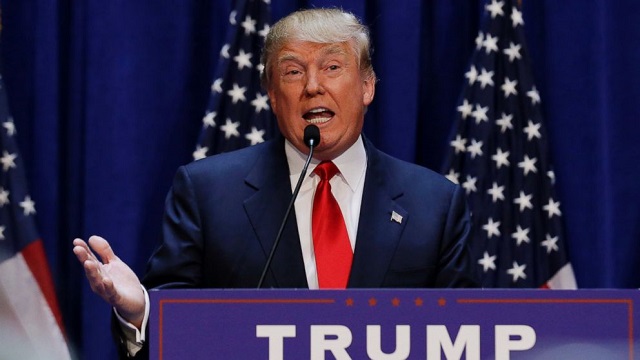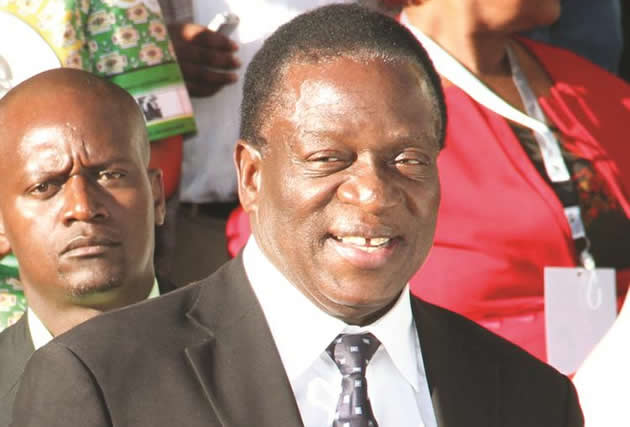Fate of grass when elephants fight

Perspective, Stephen Mpofu
It is more or less like a pregnant woman out there in a remote rural setting who must wait until the day of delivery to discover if she carried a boy or a girl or twins.
That is just how expectant Africa generally is regarding the incoming United States administration’s policy on the continent. The reason for that obviously worrying blank in many countries no doubt including our own, is that Mr Donald Trump who moves into the White House on January 20 dropped not even so much as a hint on how he would rank Africa in his overall foreign policy, thus leaving everything to speculation.
His anti-immigrant stance might persuade both pessimists and optimists to believe that once he assumes power Mr Trump will make good his obsession with foreigners from Africa in the same way as his dislike of Mexicans has made him want a wall built between his country and Mexico.
That being the case, therefore, the stress that he put on undocumented immigrants in his campaign rhetoric might turn out to be a mere nicety camouflaging his total dislike of foreigners flooding that nation of immigrants for the “opportunities” about which the US touts itself to the rest of the world.
[But what is probably the irony of ironies about Trump’s fixation on immigrants is that his wife, Melania, comes from Slovenia, in Central Europe and unconfirmed reports also say that his mother was of Scottish origin.]
Some American analysts had speculated that, even though Africa did not feature in his campaign trail, Mr Trump’s policy on the African continent would come through appointments he would make in organisations such as USAID, for instance, which benefits many Africans.
Their assumption or beliefs still have to be vindicated, however.
With just less than a fortnight to go before he takes over from Mr Barack Obama, Mr Trump’s perception of Africa remains unclear if not altogether unknown to many on our continent – and this must surely be a cause for both concern and worry for Africa when considering that the US is the world super power after the demise of the Soviet Union notwithstanding, the fact that Russia contests America’s superiority.
Now consider this. If the trumpeting heard from Trump so far is anything to go by, that Western economic elephant appears hell-bent on a bruising trade battle with America’s Eastern economic rival, China.
Trump seems to make nonsense of the “one China” policy recognised by the United Nations and its member states with Taiwan as part of the greater China rather than an independent state.
A telephone call from the ruler of Taiwan in the capital Taipei congratulating Trump on his election victory has caused a political rumpus between Beijing and the incoming American leader who has made it known that a trade war between the two countries is on the cards.
If that fight truly gets underway between the two giant elephants the grass is proverbially bound to suffer.
There are no two ways about it and this suggests that any country perceived by the Trump’s administration as China’s ally, trade wise, must suffer the consequences of that alliance.
China is a big investor in Zimbabwe and elsewhere in Africa and, as such, Zimbabwe — and probably other African countries doing business with Beijing — might be lumped up with China as enemies and that way bear the brunt of the fight of the elephants as the grass.
Our leaders have made pronouncements to the effect that the Zimbabwean government wants to work with president Trump’s administration.
However, no public response has been heard from the president-elect.
Any positive response from Washington DC should manifest itself through a revocation of the Zimbabwe Democracy and Economic Recovery Act passed by the American congress on March 8, 2001, to impose economic sanctions on this country as retaliation for the Zanu PF government’s land reform programme.
Zidera was ostensibly intended to effect regime change and with that reverse the reform programme under which the government repossessed land previously seized by white settlers, for relocation to Zimbabweans who waged a protracted armed struggle with losses of precious lives in the process, to get back land seized from them during colonisation.
Subsequent American administrations have responded with deaf ears to impassioned calls made by Zimbabweans and other countries and progressive organisations for the sanctions to be lifted.
In spite of the continuing illegal, Western economic and financial embargo, this country has soldiered on even with our economy badly savaged, as it is, with the blueprint, Zimbabwe Agenda for Sustainable Socio- and Economic Transformation, making headway regardless.
Command Agriculture recently introduced by the Government for farmers to grow various crops under irrigation with State-provided inputs should be regarded as an important chapter to the blueprint — something that must tell our sworn enemies that whether the weather be bad, whether the weather be good Zimbabweans are prepared to weather the weather and take their country to a higher social and economic level.
The message to both our foes and allies is that the general elections next year should prove a death knell for individuals and political organisations that have and continue to sup with the enemy to try to remove the incumbent government and with that kill all programmes meant to take our country to a brave new future.
Obviously, success in this country’s endeavours will require single hearted devotion, patriotism and a love of the motherland.











Comments